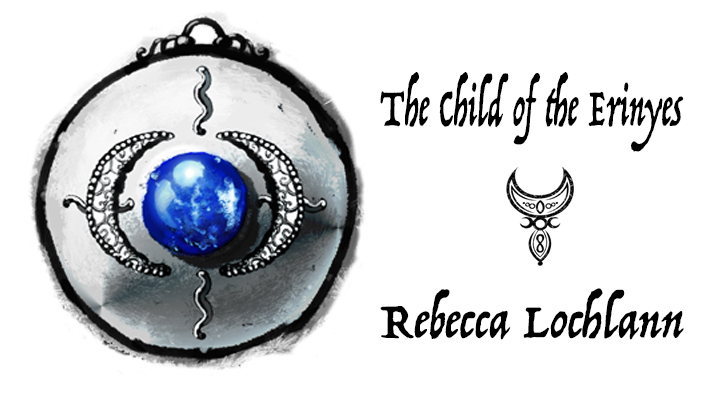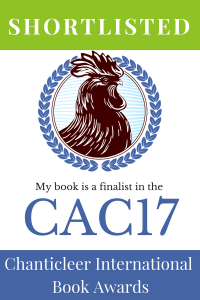Category Archives: Reviews: The Thinara King
Reviews: The Thinara King
From Chanticleer Book Reviews:
There’s only sorrow for Aridela, the heiress to the throne of Kapthor when she learns her heart is not hers to give freely and every decision she makes concerning her love life brings about dire consequences for her people in Rebecca Lochlann’s The Thinara King, Book 2 of The Child of the Erinyes series.
When Aridela meets Chrysaleon, a Greek “barbarian” by the standards of her people, she falls in love. Chrysaleon, young, bold and brash, is as smitten with Aridela as she is with him, but he has been promised in marriage to her sister Iphiboë, who is bland and boring by comparison.
The marriage is all important, though, as it will consolidate his father’s power, linking his lineage with that of Aridela’s culture, a culture that reveres the power and station of women. Kapthor is ruled by Aridela’s mother Queen Helice and guided by the powerful female oracle Themiste.

Photo by Peter Vancoillie: http://skyscapes.info/ Used by permission
Aridela and Chrysaleon cannot help but consummate their forbidden love, yet as they do, a volcano erupts, devastating the island and killing many of Aridela’s relatives and friends. The volcano, seen as goddess Athene’s handiwork, is blamed on Chrysaleon, who has been identified by Themiste as the “lion” or the Thinara King, foretold in an ancient prophecy linking him to Aridela and a mysterious, unidentified bull figure. The prophecy states that this triad has the power to restore or destroy the world.
Rebecca Lochlann skillfully immerses the reader in a semi-fictional world of ancient rites and conflicts where characters live, die, and are reborn throughout her series The Child of the Erinyes.
The product of many years of study and fascination with the era and the mythology, The Thinara King establishes Lochlann’s connection with the novel’s setting and genre by smoothly combining many convincing elements: the handsome hero determined to win the strong-minded fair lady, the dark anti-hero plotting on the sidelines, the wise demi-goddess who keeps her own counsel and manipulates outcomes behind the scenes, the grisly battles fought at close range, and the spectacular festivals marking the passing of the years.
Lochlann’s over-arching narrative, switching from character to character, is deftly composed, making for many surprises without deviating from the backdrop with its elaborate history-rich trappings.
A tale of ancient kingdoms, of love promised and lost, heralded victory and hopeless defeat is the second novel in her much-acclaimed series, The Child of the Erinyes – another masterfully written historical fiction novel of Ancient Greece from Rebecca Lochlann.
From Booksquawk Book Reviews:
This is the second book in The Child of the Erinyes series, the first of which, The Year God’s Daughter, I reviewed here – and you can see by my enthusiasm I was eagerly awaiting the sequel.
We take up where the first novel left off (and it would be a major spoiler for the first book if I told you exactly where that was), but the brief idyll in princess Aridela’s young life is to be short-lived. With the violent suddenness only a mega-burp in the earth’s crust can dish up, her lush and peaceful home island of Crete is assaulted by a deadly pyroclastic blast from the volcanic island of Callisti, seventy miles away. Aridela and the newly crowned bull-king Chrysaleon barely survive, and to make matters worse, she believes she is the one who caused the devastation by angering the goddess Athene.
Author Lochlann does a fine job describing the destruction: inescapable waves of blistering heat and choking ash; the endless series of earthquakes and resulting tsunamis. The survivors are soon subjected to even more horror at the hands of a vengeful and opportunistic conqueror from the mainland, whose soldiers overrun the embattled island and pillage what little is left of the once proud and mighty civilization.
These are dark days for Aridela – sometimes graphically so; what she endures is not euphemistically portrayed – but deep inside she clings to the hope that she can withstand the abuse and prevail in order to appease Athene and restore freedom to her remaining people. Chrysaleon, too, endures much. On the verge of death, he has visions of an out-of-body journey to the heavenly land of the gods that enlightens him to his new status as The Thinara King – the one man with the power to change the destiny of everyone in the mortal world. But will he choose the right path?
I don’t want to give too much away. Let me just say in closing that this series is my new addiction. Lochlann is a meticulous writer, and I predict that the outpouring of accolades she is already receiving from her readers will eventually give her a well-deserved boost onto the best-seller lists.
From Elisabeth Storrs, author of The Wedding Shroud, and other novels of the ancient world:
A captivating and brutal time brilliantly depicted
The palace of Knossos remains to this day as a masterpiece of ancient architecture. A set of enormous bull’s horns stands at the entrance, a potent reminder of the Minoan society’s belief in power and fertility and the yearly sacrifice of the bull king. In The Thinara King, the second book of The Child of Erinyes series, Lochlann once again plunges the reader into the sights and sounds and smells of Cretan culture. There is little respite from drama in this book. The first scenes rocket you into the cataclysms of earthquake and tsunami as the Immortals rain down their wrath upon the people, destroying cities and crops and visiting death over Princess Aridela’s country.
The wilful, capricious child of The Year God’s Daughter matures in this novel as she grows into a woman faced with tragedy and the responsibility for reconstructing the hopes and fortunes of Kaphtor. Lochlann continues to build the tension in the love triangle of Aridela and the Mycenaen half-brothers who both love her – the flamboyant Chrysaleon and the brooding Menoetius; the lion and the bull who haunt her dreams and fantasies. There is some frustration for the reader, though, in this tug of war for Aridela’s affections. I wanted to know by the end of the book who would fully claim her heart. Luckily there is a third book coming that will, hopefully, resolve this.
The author is to be admired for her commitment to revealing both a captivating and brutal time. She does not spare the reader the realities of life in the ancient world. At times it is gruelling to read about the violence, rapine and cruelty. Yet without such an approach, history becomes sanitised and the tenor of the period diluted. There is skill, too, in her development of the characters whose fates are intertwined and whose lives are constantly threatened by enemies and gods.
Lochlann also helps us travel to a matriarchal society which is menaced by the encroaching assault of a warrior culture from the Greek mainland. And the vision of Themiste, the prophetess, who foresees a world where males subjugate women, is especially poignant given that the reader knows its truth.
The Thinara King is a gripping read from an author whose obvious love for Cretan and Greek history shines through but never dominates the narrative. I was sad to leave ancient Kaphthor and look forward to returning to it In the Moon of Asterion.








